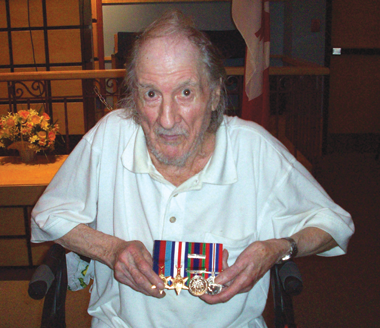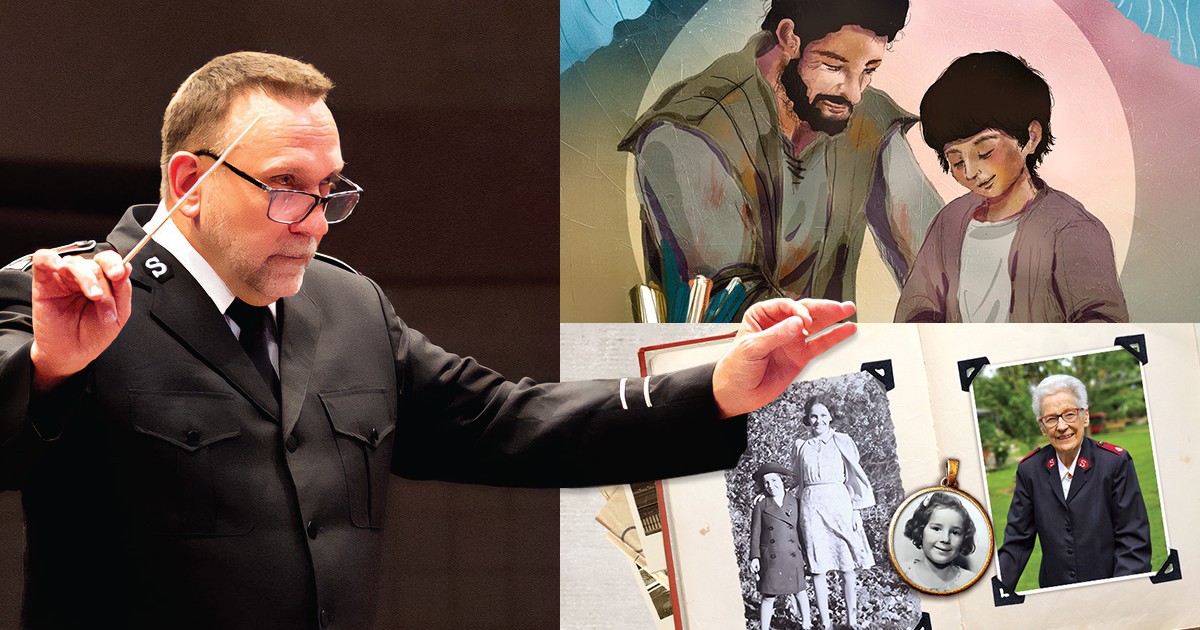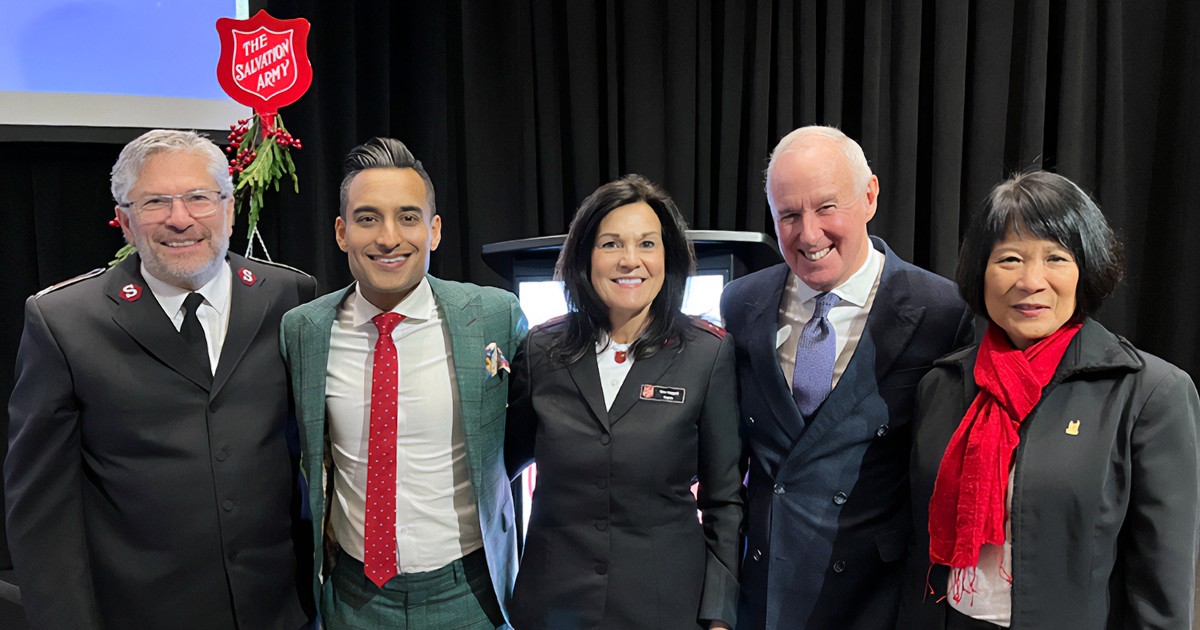 Major Christopher Dickens was conducting Pat Stogran, the Veterans Affairs Canada ombudsman, on a guided tour of The Salvation Army's Maxwell Meighen Centre, a 120-bed facility in Toronto. Stogran had heard about the services the centre provides homeless men, some of them veterans, and had wanted to see with his own eyes the good work done by the Army.
Major Christopher Dickens was conducting Pat Stogran, the Veterans Affairs Canada ombudsman, on a guided tour of The Salvation Army's Maxwell Meighen Centre, a 120-bed facility in Toronto. Stogran had heard about the services the centre provides homeless men, some of them veterans, and had wanted to see with his own eyes the good work done by the Army.
Major Dickens escorted Stogran to Don Hutchinson's room to visit him. Without preamble, the 87-year-old resident asked him, “How can I get my medals replaced?”
“We were all surprised to hear him say that,” says Major Dickens. “He had never mentioned his medals before.”
From Army to Army
Born in Toronto, Don enlisted in the Canadian Army Medical Corps in 1943, at the height of the Second World War. Stationed in England, he landed in France shortly after D-Day in June 1944, and soldiered through the blood-soaked battlefields of France, Holland, Belgium and Germany right through to the end of the war in 1945.
Discharged in 1947, he returned to Toronto and from there, bounced from job to job, doing a little bit of everything. “I moved around quite a bit,” says Don. Somewhere along the way, however, he lost the precious medals that had been awarded to him during the conflict.
When asked what brought him to the Maxwell Meighen Centre, Don replies ambiguously, “Circumstances.”
Don's Medals of Valour
1939-45 Star
Awarded for service on active operations from September 3, 1939, to September 2, 1945.
France and Germany Star
Awarded for entry into operational service on land from June 6, 1944 (D-Day), in France, Belgium, Holland or Germany, until May 8, 1944, the date of the end of active hostilities in Europe.
Canadian Volunteer Service Medal (CVSM)
Awarded to members of the Armed Forces who voluntarily served 18 months between September 3, 1939, and March 1, 1947.
Clasp to the CVSM
Awarded for a minimum of 60 days' service outside of Canada.
War Medal 1939-45
Awarded for 28 days' service between September 3, 1939, and September 2, 1945, to full-time members of the Armed Forces.
“Don's almost a part of the woodwork here,” chuckles Major Dickens, executive director of the Maxwell Meighen Centre. “He's a bit of an enigma. No one knows how long he's lived here, least of all Don.” Archival records indicate he worked in the kitchen in the 1970s. “Don's lost all contact with his family,” Major Dickens continues. “He remembers where his father is buried but has no memory where his mother or the rest of his siblings are laid to rest. He considers us his family now, and this is his home.”
“Just Mail Them”
So matters stood until last April's visit.
In concert with Veterans Affairs Canada, the application forms were quickly faxed to the centre and Major Dickens and Don filled them out and sent them back the following day. “Once we knew what had to be done, the process was surprisingly easy because Don still had his discharge papers,” explains Major Dickens.
When Don was asked how he wanted to receive his medals, he humbly answered, “Just mail them to me.”
Major Dickens smiled and replied, “I think we can do better than that.”
Honouring a Warrior
Accordingly, the Maxwell Meighen Centre hosted a medal-presentation ceremony in the chapel on June 26. In attendance were the staff and clients at Maxwell Meighen including Salvation Army representatives,
Veterans Affairs ombudsman Stogran and members of the Toronto Police Service.
Don, unassuming as most veterans are, spoke a few words of thanks. But Major Dickens was not about to let the occasion go unremarked. “If you've never had a chance to shake a Second World War veteran's hand and say, 'thank-you,' ” he said, “you've got that chance today.”
Over a dozen Toronto police officers lined up to shake Don's hand, as well as many of the centre's clients. At one point, one of them crouched down beside Don, shook his hand and said softly, “I'm a veteran, too. I served in the Persian Gulf.”
Major Dickens quietly took the young veteran to one side as he was leaving and introduced him to the Veterans Affairs ombudsman, saying, “Pat would very much like to talk to you.”
“Part of our outreach for the Leave Nobody Behind campaign is to meet new and old veterans, so that we can provide the level of support they deserve,” Stogran points out. In fact, thanks to this encounter, Don is now receiving support from Veterans Affairs, including a new walker to replace the one recently damaged in a fall. It's a small token of recognition for everything veterans such as Don have done for the nation.
“This generation was phenomenal,” declares Major Dickens, the son of a veteran himself. “They went to war, came back and built a nation. And as they get older and older, they become more precious. It was a privilege to honour this warrior.”









Nice work.